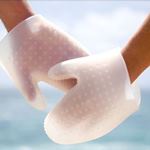 World Contraception Day
World Contraception Day

Since 2007, September 26 has been celebrated World Contraception Day as a global action to raise public awareness about family planning. The initiators of this event were ten international organizations whose activities are related to problems in the pressing issue of family health.
The goal of World Contraception Day is to reduce the number of unwanted pregnancies and, as a result, the number of abortions. Around the world on September 26, educational campaigns are held to improve contraceptive literacy, as well as charitable public events, and thematic portals are opened.
Unfortunately, in Russia this holiday (or just a day?) passes quite unnoticed. Mostly experts and participants of events are aware of the events. We, as workers in the most humane sphere of human activity, should support the movement started in 2007 like no one else. And to begin with, we ourselves should become literate in the issue that interests us, if we are at a young, reproductive age.
We invite you to read our popular article today.
10 Surprising and Fun Contraception Facts You'll Need to Know
Author: © Antonina Mikhailova
Fact 1. Water and lemon are not a means of contraception
In addition to medical, the people also know a lot of "home" contraceptives, especially when it comes to emergency methods. For example, one of the folk wisdom says that after unprotected sex, a girl should “wash” her genitals with a strong jet of water to remove sperm that got there. However, in reality, such measures have just the opposite effect: water will only push the seminal fluid deeper through the vaginal canal, which, accordingly, will increase your chances of pregnancy.
Another original recipe recommends moistening the genitals before and after an intimate act with lemon juice or vinegar. There is some logic in this: spermatozoa do not tolerate an acidic environment well and are likely to die from such liquids. However, you are unlikely to be able to treat all the internal organs thoroughly and deeply enough, plus, disturb the acid-base balance, which is fraught with the development of infections. And, of course, the skin in the groin area is very delicate, so treating it with vinegar is like getting a slight burn.
Fact 2. The most unreliable method of contraception is calendar
The calendar method assumes that the girl knows exactly the schedule of her menstrual cycle and has sexual intercourse strictly only during the “safe” period. The catch is that there are no 100% safe periods (read below), and even with a well-established cycle, the start and end dates of ovulation can fluctuate. In general, the slightest miscalculation - and you may already have to calculate the days until the first trimester, second trimester, and so on ...
Fact 3. The most reliable way is oral
Oral contraceptives are rightfully considered the most reliable method of protection. They protect against unwanted pregnancy in more than 99% of cases, which even condoms cannot boast of. That is why they are very popular in the West, and in Britain, for example, they are even distributed free of charge to schoolgirls in order to prevent teenage pregnancies.
However, they also have a number of significant drawbacks. First, they do not protect against sexually transmitted infections. Secondly, some studies show that long-term use of oral contraceptives may increase the risk of developing certain diseases, including cancer. And thirdly, taking these pills should be long and regular, which requires a lot of care and money. Perhaps that is why only 7% of Russian women prefer them.
Fact 4. During the "critical days" you can also get pregnant
This is the same mythical “safe period”, which is actually not so safe. Yes, the chances of conceiving during menstruation are really extremely small, but spermatozoa are very tenacious and can retain their functions for up to 72 hours, while being in the uterine mucosa. After the end of menstruation, they, accordingly, move on and may well fertilize the egg, which leads to pregnancy.
In addition, in some women, bleeding continues until the onset of the ovulation period - that is, while you think that there are no chances of conception, in fact, they have already reached their maximum.
Fact 5. Contraception "in the morning" is not harmful, but not harmless either
A number of drugs intended for emergency contraception (that is, to be taken after sexual intercourse) have a rather bad reputation and are even banned in some Western countries. It is believed that taking such pills is tantamount to an abortion and, accordingly, can lead to similar consequences.
However, gynecologists reassure: this is not so. Emergency contraception preparations often have the same composition as conventional oral contraceptives, they just contain a much higher dose of hormones than the latter. Accordingly, they do not cause an abortion, but simply prevent conception, which is why they should be taken no more than within 72 hours after sexual contact. Another question is that it is often really harmful to “dabble” with such pills: large doses of hormones can cause menstrual irregularities and other unpleasant consequences.
Fact 6. Condoms and Vaseline are incompatible
Many condoms are already equipped with artificial lubrication, which means that there should be no need for additional. In other cases, it is worth using only ointments specially designed for intimate purposes, since petroleum jelly, as well as other fat-containing creams, reduce the strength of rubber.
Fact 7. Condoms can cause allergies
According to statistics, venereologists are most often treated with complaints of itching and burning in the genital area; and it is reasonable to assume that the infection is to blame. But sometimes these symptoms can be a simple allergic reaction to chemicals like lubricants, gasket fragrances, or even latex. In this case, it is enough to give up allergy-causing drugs, switch to other contraceptives, or simply change their brand.
Fact 8. Do not trust "liquid condoms"
Spermicidal gels and creams are also called "liquid condoms" because they supposedly have the same degree of reliability, but do not affect the sensations during sex. The second may be true, but the reliability of these funds is a big question. Yes, the substances that make up their composition really “kill” spermatozoa or prevent them from passing through the fallopian tubes. But during sexual intercourse, the gel can easily “get in the wrong place” or, conversely, not get where it needs to; so it is recommended to use them only in combination with conventional condoms.
Fact 9. Contraceptive pills should not be taken with antibiotics and sedatives
The simultaneous use of these drugs may reduce the effectiveness of hormonal remedies. It is also not advised to combine a course of contraceptives with antidepressants and anticonvulsants. If you cannot refuse either one or the other, at least avoid sexual intercourse for the period of treatment; or use additional contraception, such as a condom.
Fact 10. In the future, oral contraceptives for men will appear in pharmacies
Most women are put off by the possible side effects of taking oral contraceptives, and especially, of course, the chance of getting fat. “How unfair that I should be overgrown with fat,” say the fair sex and, as a result, rely exclusively on men. And men are also unhappy: because sex with a condom seems to many "stupid", "impassionate" and devoid of the expected sensations.
Well, both moans have reason to rejoice: now several pharmaceutical laboratories are developing drugs to stop the production of sperm in men at once. True, miracle pills will not be sold soon: all the necessary tests should take 5-7 years.
And finally...
- According to statistics, a third of Americans do not know how to use condoms.
- In Switzerland, baby condoms were put on the market - because many young people are prevented from fully protecting themselves by the wrong size.
- In British schools, they offer to distribute coupons for condoms, which can then be used in special devices. This should encourage teenagers to take care of their safety, since they are simply embarrassed to buy contraceptives in pharmacies.
- Before the advent of the first condoms, the ancient Greeks and Egyptians used very exotic and rather dubious means of contraception. For example, pomegranate juice and ... crocodile feces were used as spermicidal gels. And after unprotected intercourse, the woman was advised to squat down and sneeze well.
- Two years ago, one of the largest condom manufacturers in America announced a call for volunteers to test its new products. Participants were guaranteed a year's supply of contraceptives and, in addition, a monetary reward. From wishing, oddly enough, there was no end.





